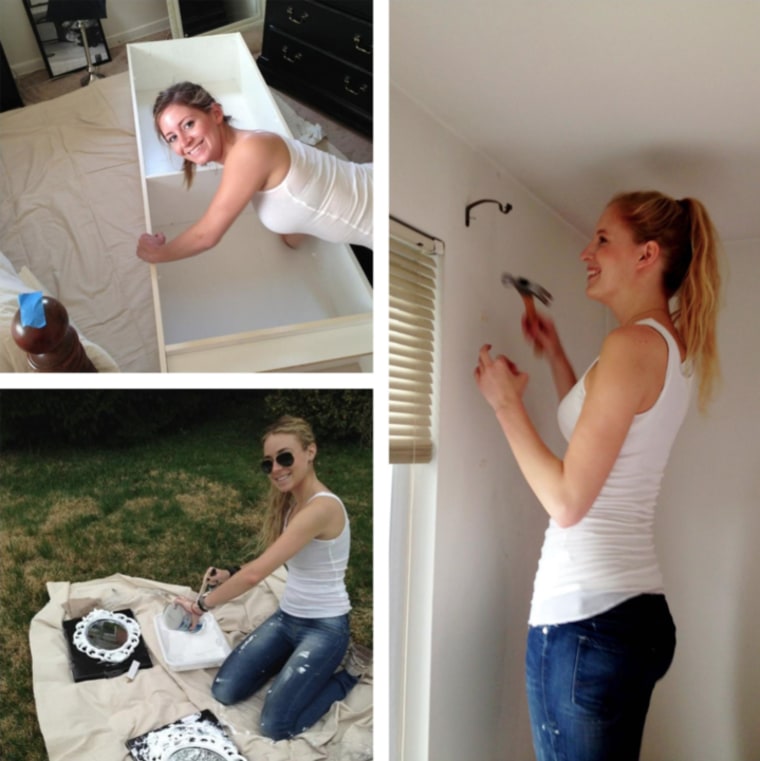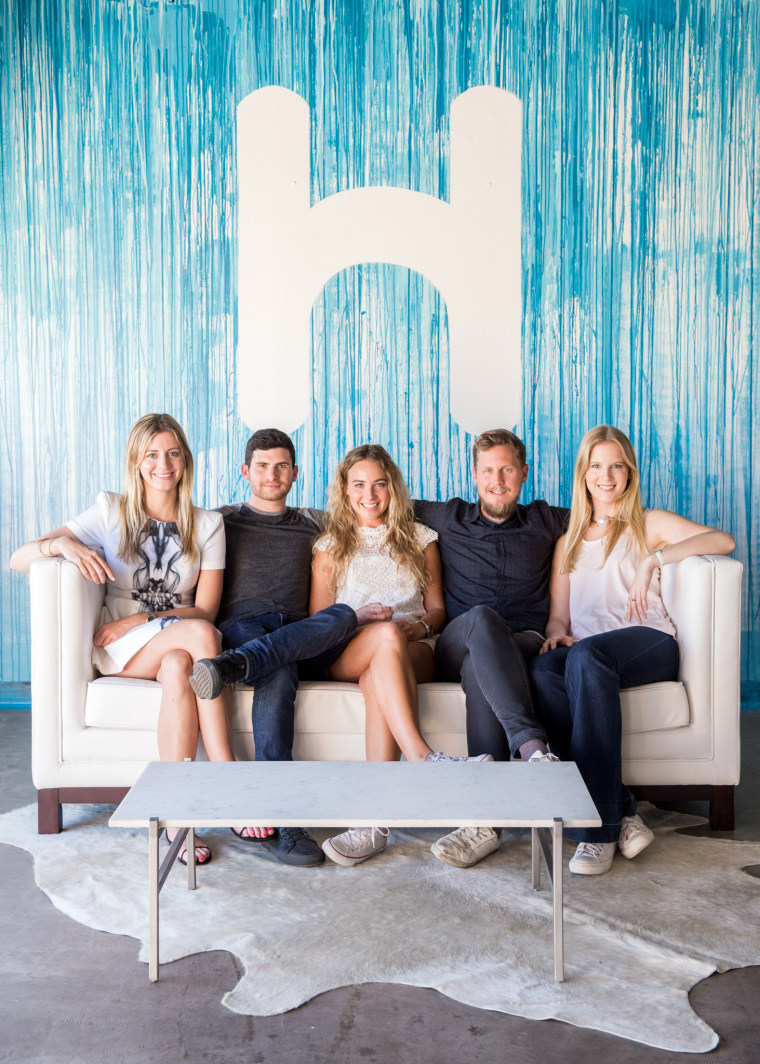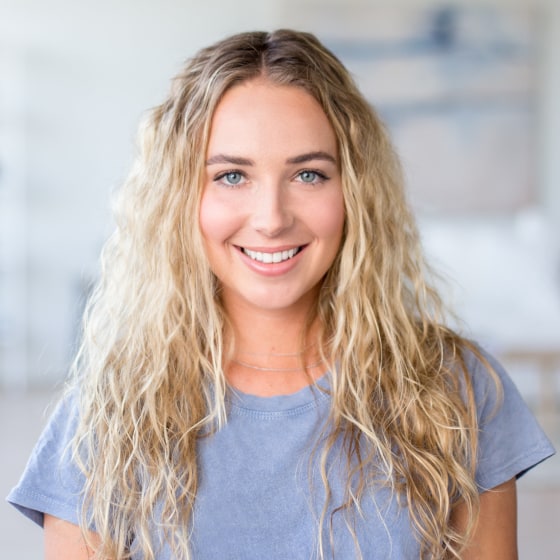In an as-told-to essay for College Game Plan, Beatrice Fischel-Bock, co-founder of Hutch, explains what she learned navigating the business development process. Hutch gives users the ability to virtually redesign their living space with alternative styles and products.
The CEO: Beatrice Fischel-Bock, 25, co-founder of Hutch
School: George Washington University, Class of 2013
From: Geneva, Switzerland
Based in: Los Angeles, California
Work emails while in school: 20-50 a day
Work emails today: 100
Time spent working while in school: 2 hours on Hutch, plus 4 hours waitressing
Time spent studying while in school: 3-4 hours
Time spent sleeping while in school: 6-7 hours
How the Hutch team met
I went to George Washington University with two of my co-founders. I have four now, but I met Madeline Fraser and Lizzie Grover in our first architectural drafting class. Madeline had come from a gap year in India, Lizzie had transferred schools and I was joining a program without any sense of what I wanted to do.

We gravitated towards one another and started designing together. Friends would say, “We have $200. What should we do?” They’d send us a photo of their rooms, we figured out how to scale the space and we’d shop online, and our friends would buy furnishings from the links.
Our first lesson in business
Before finishing up our semester we entered a business plan competition, where the winner received a prize and started an actual company. The first step was an executive summary. We had no business experience whatsoever. It was incredibly scary and took about two weeks to write up one page.
We turned in the executive summary and we got denied, so that was failure at step one. You'd think that would deter us but we had so much fun with it, we said, “We have this idea that’s working; why don’t we try a business?”
How Hutch went from dorm room to boardroom
After that experience of writing up a business model, we printed business cards and created a website with help from friends. We charged family and friends $150 up front and then we’d do the design. We’d have everything sent to our apartment and dorm room. On the weekends, we’d fill a Zipcar or a U-Haul with boxes and show up at our clients’ houses and spend nine hours installing the space. It was fun too see your idea come to fruition and actually work.
I’d get home at 2 a.m. from my cocktail waitress job and we’d have an install that started at 7 a.m. One time I cried very hard on a Saturday after two weeks of not sleeping, but when I look back on it it was obviously fun.
We started junior year, and spent the next two years doing this. Now we’ve raised over $7 million in funding from top firms.
After graduating, we got on the show "Shark Tank," and through that we met Sean Rad from Tinder, who introduced us to our two co-founders, Ben and Ethan. We three became five, and that changed everything. Each little step takes you to the next thing randomly; you never can plan any of it.

Our a-ha moment
What I tell other entrepreneurs, especially females, is that the biggest turning point was saying “we’re going to apply for this business plan competition because why the hell not?” That forced us to say, this is no longer in our heads. It’s on paper. It made us sit at our kitchen table for hours and actually think about it.
How I define success
My fantasy is an IPO. The benchmark for us will be a certain amount of active monthly users, which means we’ve built a product that people want to come back to.
I wish I had invented
The Camelbak Eddy water bottle. I haven’t been without it in six years. Someone saw it once on a counter and I wasn’t in the room and they thought something had happened to me.
